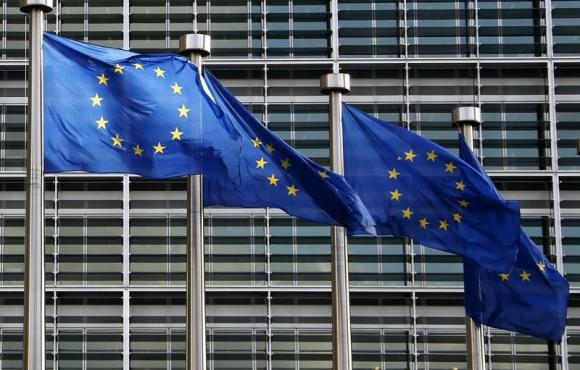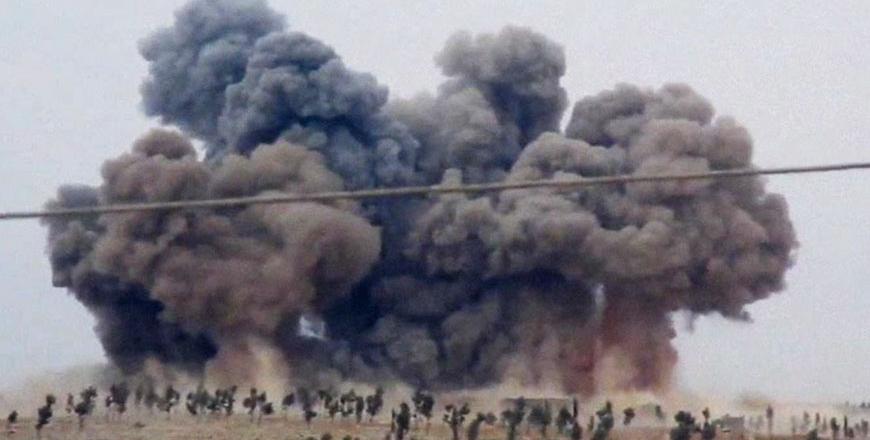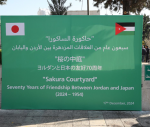You are here
Four years on, some in Europe support talking to Assad
By Reuters - Feb 19,2015 - Last updated at Feb 19,2015
BEIRUT/PARIS — Some European Union countries which withdrew their ambassadors from Syria are saying privately it is time for more communication with Damascus even though Britain and France oppose it, diplomats said.
Those states have become more vocal in internal meetings about the need to talk to the Syrian government and have a presence in the capital. London and Paris reject this, saying President Bashar Assad has lost all legitimacy.
This makes a change in EU policy unlikely, but the debate underlines a predicament for Western states which ostracised the government at the start of the crisis, imposed sanctions, and four years on still find Assad in power.
Diplomats say the calls have come from or would be supported by countries including Sweden, Denmark, Romania, Bulgaria, Austria and Spain, as well as the Czech Republic, which did not withdraw its ambassador. Norway and Switzerland, which are outside the EU, are also supportive.
Although Europe has long faced divisions on Syria, the calls have increased since Daesh advanced in Syria and Iraq last summer and US-led strikes started against the group.
US officials say there is no shift in their policy regarding Assad, even as their focus is fighting Daesh, an Al Qaeda offshoot which is also an enemy of Damascus.
"Some states say: Bashar is a reality, we have to take this into account if there are threats to Europe," one European diplomat said, referring to the risk of attacks at home by jihadists returning from Syria.
The EU first imposed sanctions on Assad and his circle in 2011 as authorities cracked down on protests. The crisis has spiralled into a civil war, killing more than 200,000, a level of suffering that some diplomats see as justifying contacts with Damascus in pursuit of a political solution.
While it is generally understood that there will have to be negotiations, diplomats said, Britain and France see Assad's departure as a precondition. But the collapse of his government has become less likely as the war rolls on.
"We've been waiting for it to fall like a house of cards, but the problem is that we've been waiting for that for four years and that isn't happening," a senior EU diplomat said.
Full circle
The United Nations Syria envoy said on Tuesday the Syrian government was willing to suspend its bombing and shelling of Aleppo so a local ceasefire could be tested, a plan EU foreign ministers had backed in December.
"It is important the European Union support the UN mediator and his effort to create a ceasefire," Denmark's Foreign Minister Martin Lidegaard told Reuters. "In relation to that, we cannot avoid to talk to the regime in Damascus since they represent an element of power."
European diplomats point to what they see as the shift in the US stance on Syria. US officials say they have not relented in their goal of Assad leaving power but see no policy likely to achieve this at an acceptable cost.
As a result, for months they have tacitly lived with Assad staying in his post and have made clear their focus is to combat Daesh.
"We don't know what this coalition wants and the United States is not deciding," said Bassma Kodmani, director of the Paris-based Arab Reform Initiative and a former member of the main Syrian opposition in exile.
"That's leading to calls in Europe that Assad is the lesser of the two evils. The debate has come full circle."
In public, EU foreign ministers have ruled out dealing with Damascus. After a meeting in October they said "the Assad regime cannot be a partner" in the fight against Daesh.
For its part, the United States, along with Turkey, reached a tentative agreement to train and equip non-jihadist Syrian fighters who oppose Assad.
The EU has imposed sanctions on officials, businessmen, institutions and trade and bans the import of Syrian oil or petroleum products. It has 211 people under sanctions and 63 companies or other organisations.
In October it expanded sanctions to include 12 government ministers, two senior military figures and a United Arab Emirates company it accused of helping supply oil.
"Bashar Assad has been murdering his people for years," French Defence Minister Jean Yves Le Drian said last week when asked whether France should resume intelligence sharing with Damascus in the fight against Daesh.
"He is not part of the solution for Syria so we don't need to choose between a bloody dictator and a ruthless terrorist army. The two should be fought," he said.
Assad is keen for the West to reopen embassies, diplomats say, ruling this out for now. Some see a middle ground: talking to Damascus but condemning violence and pressing for aid access.
"I would hesitate to use the word engage, it is about communicating again," a third diplomat said. "We lack visibility."
Even in Paris there are some misgivings about the way the crisis was handled. Closing the embassy was a mistake, said a senior French diplomat who had called for more dialogue with the Syrians and their ally Iran.
Several EU countries have diplomats who travel to Damascus but are not based there officially. "Others who kept them open were able to have eyes on the ground and keep a relationship with Assad," the French diplomat said.
"We don't have a clear idea of what's going on. Within intelligence circles the will to renew the dialogue is there."
Related Articles
The European Union has imposed sanctions on a Syrian businessman who it says has bought oil for Syria from Daesh terror group, an Al Qaeda offshoot that the government in Damascus has declared to be its enemy.
WASHINGTON — Bashar Assad's presidency looks likely to outlast Barack Obama's.As the United States has turned its attention to defeating the
BEIRUT/MOSCOW — Hundreds of Iranian troops have arrived in Syria to join a major ground offensive in support of President Bashar Assad

















